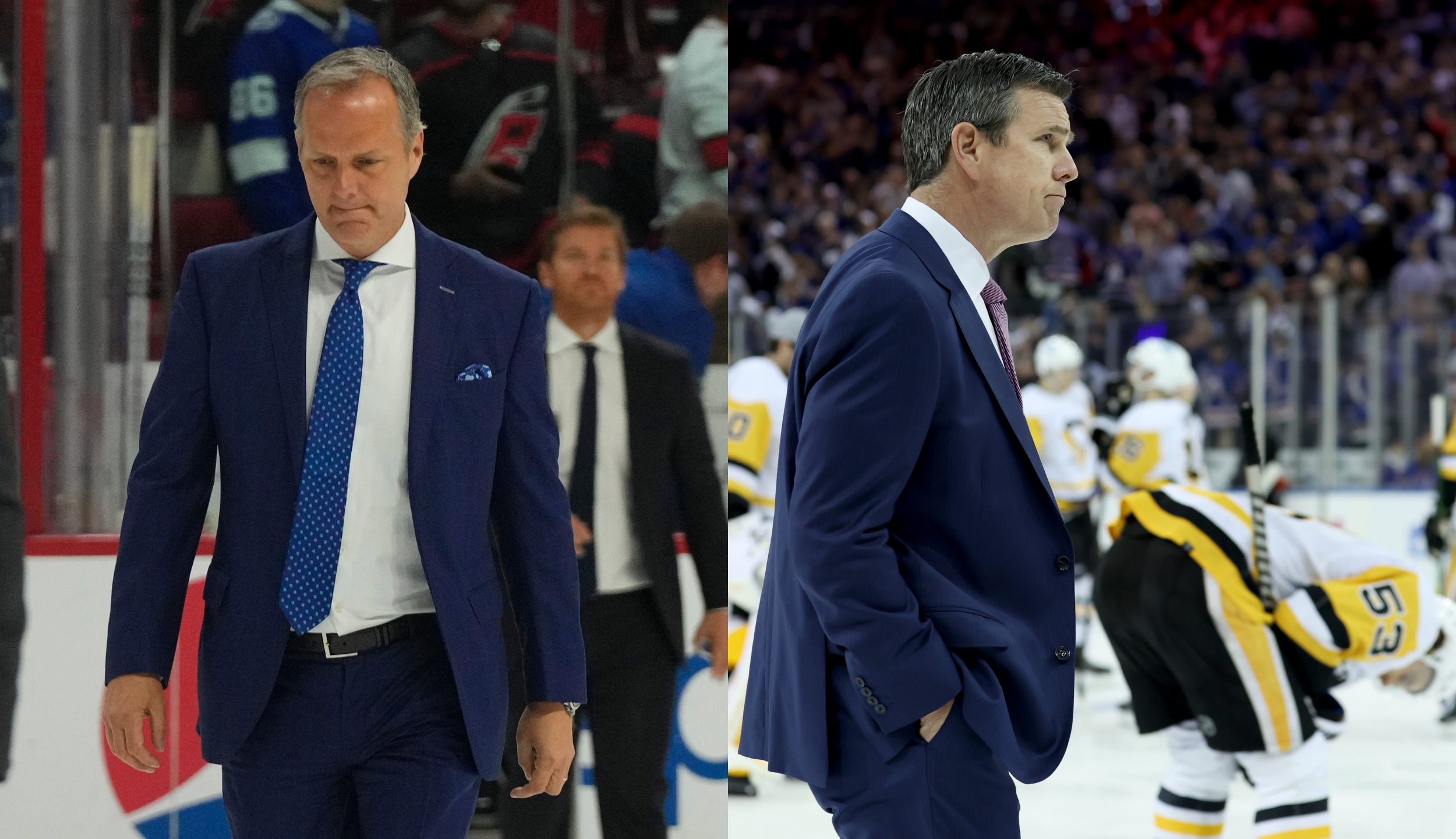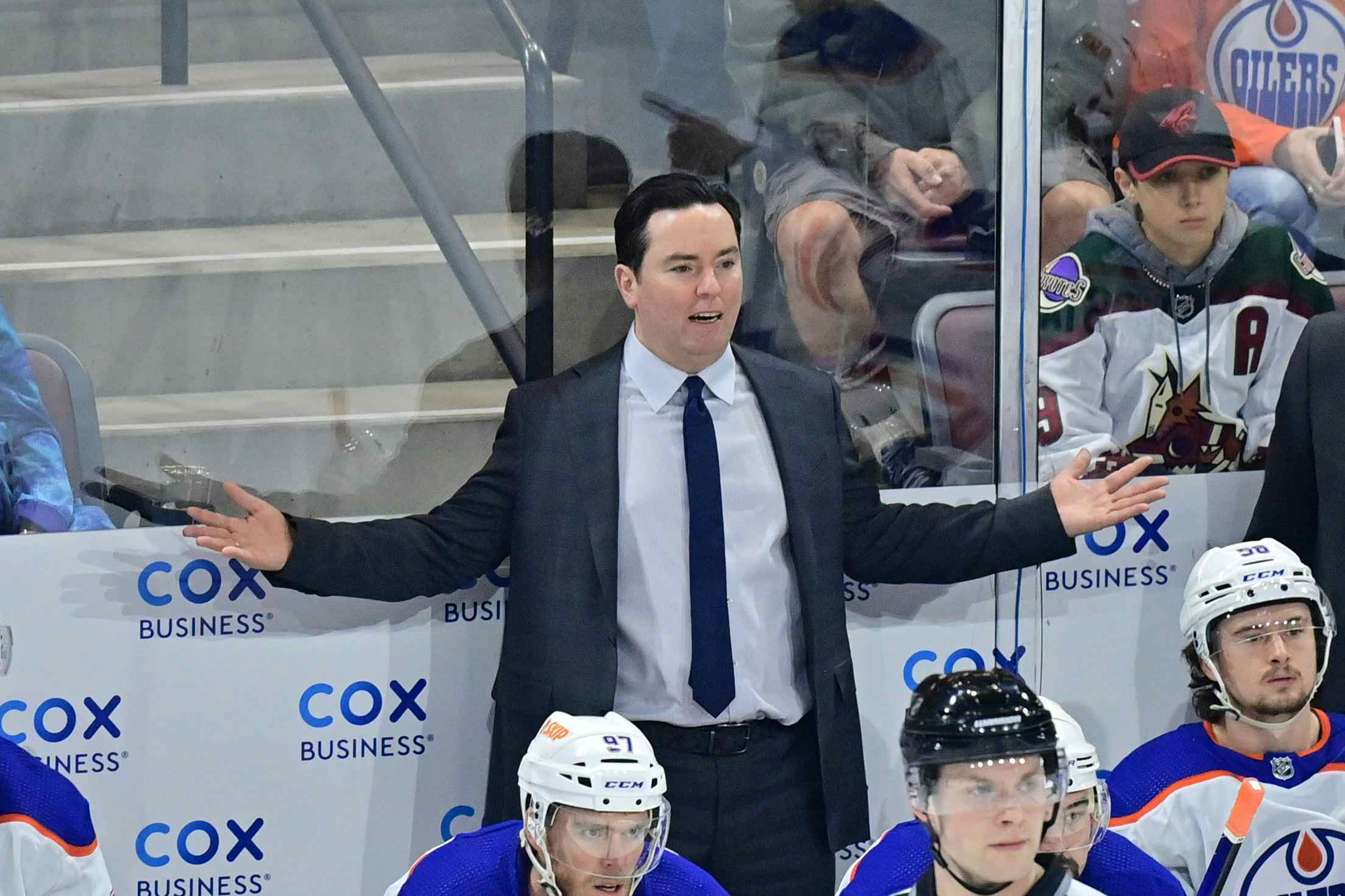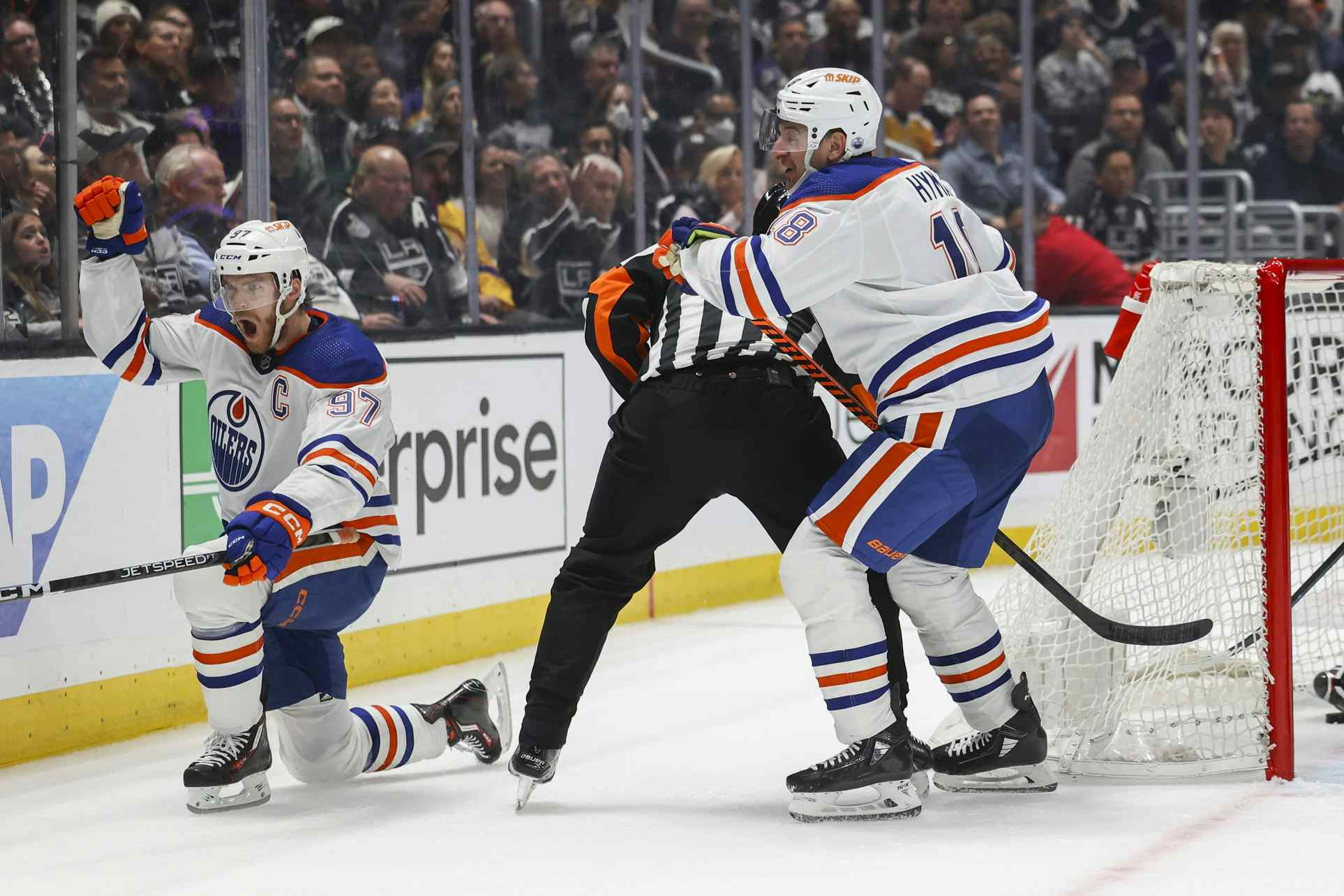Leon Draisaitl, Healthy Scratch

In what can variously be described as a victory for meritocracy, a victory for proper development or a blow to proper development, it appears that the Edmonton Oilers will make Leon Draisaitl a healthy scratch for Sunday’s game against the Dallas Stars.
Meritocracy

Draisaitl did not have to force his way on to the Edmonton Oilers roster and he has seen virtually no competition for a spot in the lineup. The team built by general manager Craig MacTavish started the year with two NHL centres, rounded out that group with Draisaitl and Mark Arcobello, and penciled in Will Acton as its little-used No. 5 pivot, meaning that all Draisaitl had to do to stay in the lineup every night was be better than Acton. After an ugly cameo, Acton was demoted to the minors and soon departed the organization, and Draisaitl had literally no competition for a roster spot at centre.
There is virtually no better way to create a culture of entitlement than to constantly hand things to players who haven’t earned it.
That’s one of the reasons the elevation of Anton Lander is encouraging. He creates at least the possibility of competition for a job at centre, giving the coaches the option of scratching Draisaitl or Arcobello if they don’t play very well (breaking news: for most of the year, neither has). We can debate how formidable Lander is, but he’s now getting a shot at his natural position under a coach who helped get the most out of him in the AHL, so there is at least some reason to think that he might show more this time than he has in previous NHL stints.
Ideally, a team should never be stuck in a situation where it has to play guys who have earned a seat in the press box. That’s where the Oilers have been at centre all year; it’s a big positive to see that changing.
Development

From a development standpoint, nobody’s likely to read too much into a single game in the press box. But it might prompt the Oilers to move beyond Draisaitl at centre; mileage is going to vary on whether that’s good or bad.
Some argue that the important thing with elite players is to get them to the highest level possible as quickly as possible; they say that those players only flourish when they’re being pushed to their limits. This school of thought urges that players like Sam Gagner and Magnus Paajarvi – both top picks, let’s not forget – get promoted to the majors early so they can be properly challenged. The results of that philosophy have been decidedly underwhelming in Edmonton.
Then there are people like me who look at what Detroit does, see the incredible results, and argue that’s the way to do it. There is a lot of misunderstanding about the Red Wings’ development system – many in Edmonton argue that Detroit’s tremendous depth is what allows it to do what it does but in reality it’s much more than that. There isn’t a team in the league that can’t find third and fourth-line depth players in free agency if it wants to; there is always a Kyle Chipchura or David Schlemko or Viktor Stalberg around to plug in if a team prioritizes patient development. The trick is that the team needs to make patient development a priority.
I’ve quoted Ken Holland’s take from the book Behind the Moves previously; I’m going to do so again here:
I spent nine years in the American Hockey League, and what impacted [me] there as I got into my third, fourth, fifth year of pro, was that I was a veteran American league player who was kept around to provide leadership and to be a good player to help the team win. Hartford would bring all these kids in – and the organizations that I was with in Detroit and Hartford, they were struggling organizations. The minute a young kid would play well for six weeks, he’d get [called] up and [provide] a little bit of spark [to the parent club,] and then six weeks later they would [be sent back] down and they were just beaten up. The league was too tough. They couldn’t make a difference. It took you another few weeks, few months to get those players back to where they [had been] confidence-wise and playing-wise. So from a player-development standpoint – a personal-development standpoint – [I learned that] people are ready when they’re ready and [I learned about] the importance of building a foundation.
People are ready when they’re ready. It’s important to build a foundation. Recalling guys based on a short sample of strong results is ultimately hard on the development of those players.
There’s been a lot of talk around the internet about how Draisaitl hasn’t been getting overwhelmed by the league. It’s never really rung true for me; what feels more accurate is what Holland said above about countless unnamed prospects rushed to the NHL. The league was too tough. He couldn’t make a difference.
The Oilers should really hope that Lander can put it all together. All down the line the team has professed that it was going to do what was best for Draisaitl’s development; it seems clear at this point that “more NHL action” is not what’s best and it’s just a shame that doing the right thing for a valuable prospect basically requires Lander to make the jump to being an NHL centre tomorrow.
RECENTLY BY JONATHAN WILLIS
Recent articles from Jonathan Willis





